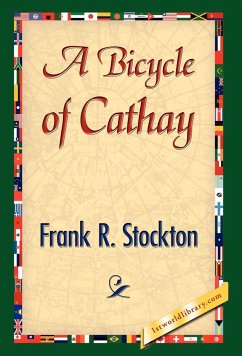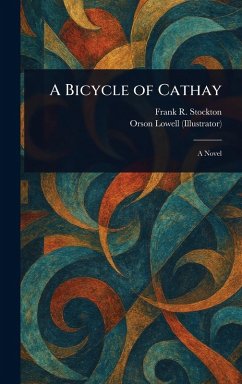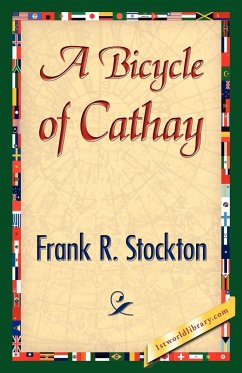
A Bicycle of Cathay
Versandkostenfrei!
Versandfertig in über 4 Wochen
26,99 €
inkl. MwSt.
Weitere Ausgaben:

PAYBACK Punkte
13 °P sammeln!
It was a beautiful summer morning when slowly I wheeled my way along the principal street of the village of Walford. A little valise was strapped in front of my bicycle; my coat, rolled into a small compass, was securely tied under the seat, and I was starting out to spend my vacation. I was the teacher of the village school, which useful insti-tution had been closed for the season the day before, much to the gratification of pedagogue and scholars. This position was not at all the summit of my youthful ambition. In fact, I had been very much disappointed when I found myself obliged to accept ...
It was a beautiful summer morning when slowly I wheeled my way along the principal street of the village of Walford. A little valise was strapped in front of my bicycle; my coat, rolled into a small compass, was securely tied under the seat, and I was starting out to spend my vacation. I was the teacher of the village school, which useful insti-tution had been closed for the season the day before, much to the gratification of pedagogue and scholars. This position was not at all the summit of my youthful ambition. In fact, I had been very much disappointed when I found myself obliged to accept it, but when I left college my financial condition made it desirable for me to do something to support myself while engaged in some of the studies preparatory to a professional career.












